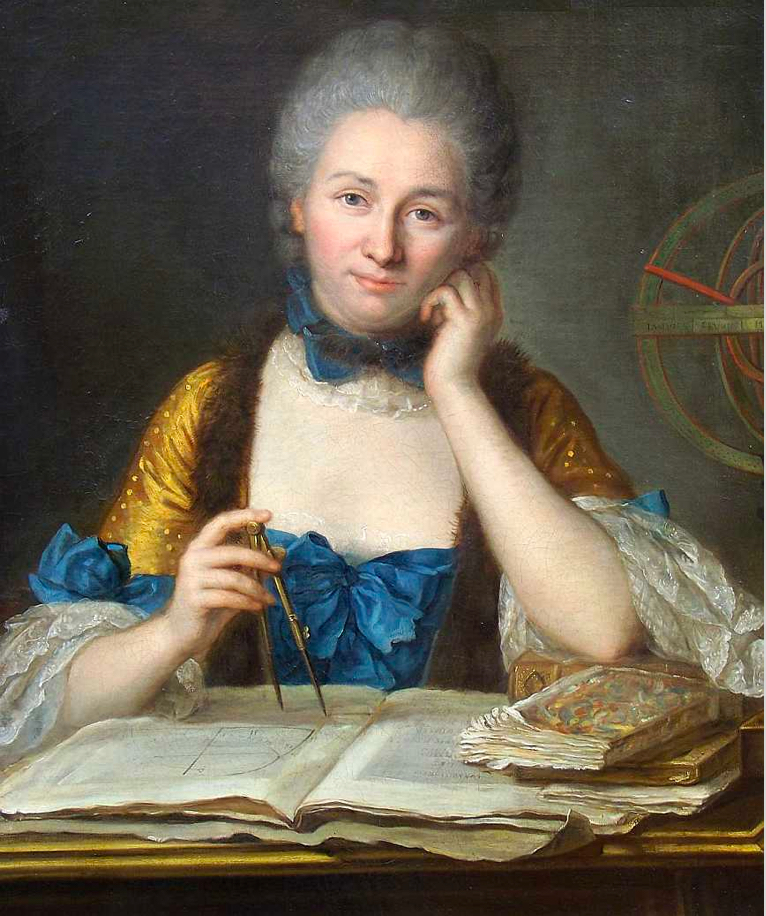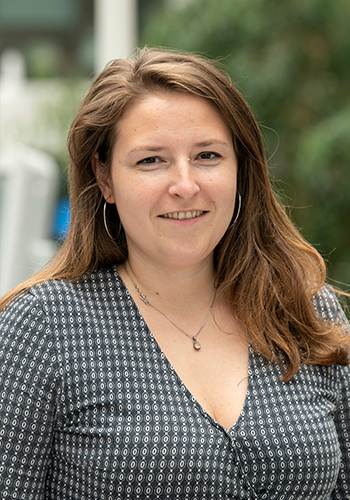
Why a career in tech?
Since my childhood, I have been passionate about biology. I used to read many books about the functioning of the human body and living organisms. I then developed a fascination for DNA: how four nitrogenous bases, a concept that is simple in theory, can define our genetic information in such a complex way that many researchers continue to explore the subject and make new discoveries every day. Beyond theory, I became interested in applications and discovered biotechnology. I am now convinced that biotechnology plays a major role in addressing the challenges of our society: environment, health, and industry.
Your professional experience?
I completed an academic education at the University of Grenoble: a bachelor’s degree in general biology, a master’s dergree in epigenetics, and a PhD in cellular and molecular biology. I then joined Genopole to carry out a postdoctoral fellowship in collaboration with a biotechnology startup called Synovance. I subsequently worked for Inovactis as a researcher to develop immunotherapeutic vaccines based on yeast. Finally, I joined Michelin four years ago to work in R&D in the field of biotechnology.
Your first experience with technology?
My first experience in tech was at Synovance. I discovered white (industrial) biotechnology. The goal was to use modified micro-organisms to convert biomass into high-value molecules. Thus, the supply of target molecules became more sustainable, and the manufacturing process had a lower environmental impact. It was at that point that I realized I could have a positive impact, even modest, on the environment, while doing what I love most: manipulating DNA.
What do you do today, and why?
Today, I work at Michelin in R&D. I use biotechnology to identify new metabolic pathways in micro-organisms. The aim is to design and source monomers and polymers of interest in a more sustainable manner. Since we do not have internal biotechnology laboratory capabilities, I work in open innovation with partners who help us carry out and scale our projects.
Your strengths in this role?
The desire to learn, creativity, listening and communication skills are abilities that I try to put into practice, as they define my vision of the ideal scientist. I work on multidisciplinary projects (biotechnology, physics, mathematics, chemistry, computer science) with people who use scientific vocabulary different from mine. It’s a real opportunity because it is at the interface of several scientific fields that the most innovative ideas are found. These skills are useful for fostering communication and ensuring the smooth progress of projects, both with our partners and within my team.
Past challenges, failures and disappointments?
In my current job, I often interact with people who possess different scientific skills and expertise than mine. Integrating into this rich ecosystem is not always easy. It requires a lot of pedagogy and patience to understand each person’s issues, which can sometimes lead to amusing situations but also to great moments of solitude.
Best moments, successes you’re proud of?
In my current work, I had chance to spend six months in the United States. It remains one of my best professional experiences in terms of learning, meeting new people, and discovering a new culture, even if it required significant personal commitment. I also give, alongside my work, eco-design courses at the University of Clermont-Ferrand. This is one of the experiences that brings me the most satisfaction. I feel that I have a positive impact on motivated students regarding the subject.
People who helped, influenced -or made your life difficult?
All the people who inspired me, who supported my choices, who offered me professional opportunities, and who believed in me, have had a positive impact on my life. This includes family, former professors, as well as colleagues and mentors from my professional environment. If they ever read this, they will recognize themselves. I thank them hugely.
Your hopes and future challenges?
For now, I want to continue to invest in my work and in the professional and personal projects that come my way. My main objective would be to demonstrate the true potential of biotechnology in my current work. To achieve this, I would like to materialize my ideas and further develop the initiated projects, which means moving from a proof of concept to a higher TRL.
What do you do when you don’t work?
I regularly practice swimming, and I am learning to play the piano. I am also passionate about Rubik’s Cubes and own about thirty at home. I enjoy spending time with my family and friends. Additionally, I have just finished building my house, which involves many interior and exterior planning.
Your heroes -from History or fiction?
There are many inspiring women, especially those who transfrom science and biology, although many have unfortunately remained in the shadows. Among the well-known inspiring women, I would cite Emmanuelle Charpentier and Jennifer Doudna, who won a Nobel Prize for the famous “DNA scissors”.
A saying or proverb you like in particular?
“Be the change you want to see in the world” – Gandhi.
A book to take with you on a desert island?
The Harry Potter series. It accompanied throughout my adolescence and, even after several rereads, I never tire of it.
A message to young female professionals?
Be sure to create and seize opportunities and view each situation as a chance to grow. Many young women do not believe in their potential and are hesitant to act. Yet, it is through experimenting, regardless of failures, that we realize our capabilities. By accumulating small victories, we then become aware of the journey traveled, which is very satisfying.

